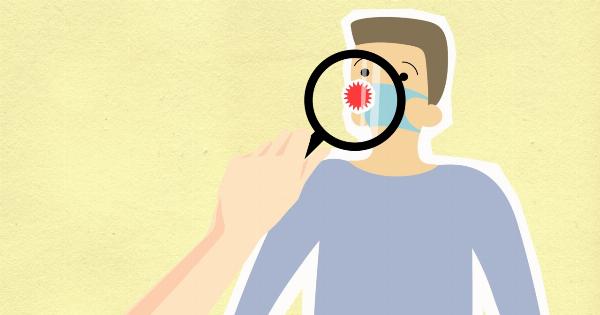Coughing is a natural reflex that helps clear the airways of irritants and mucus. While a cough is usually harmless and resolves on its own, sometimes it can be accompanied by pain.
When coughing hurts, it can be a sign of an underlying condition that requires attention and treatment. In this article, we will explore the various causes of painful coughing and discuss strategies for healing.
Causes of Painful Coughing
1. Respiratory Infections.
Respiratory infections such as the common cold, flu, bronchitis, or pneumonia can cause a cough accompanied by pain. These infections often lead to inflammation and irritation in the respiratory tract, resulting in a painful cough.
Adequate rest, fluids, and over-the-counter medications can help alleviate the discomfort and promote healing.
2. Asthma.
Asthma is a chronic condition that affects the airways, causing inflammation and constriction. A cough is a common symptom among asthmatics, and during an asthma attack, coughing can become painful.
Inhalers and other prescribed medications are typically used to manage asthma and reduce cough-related pain.
3. Allergies.
Allergic reactions to triggers like pollen, dust mites, or pet dander can lead to persistent coughing accompanied by chest discomfort.
Antihistamines, nasal sprays, and avoiding allergens can help alleviate the allergic response and reduce cough-related pain.
4. Gastroesophageal Reflux Disease (GERD).
GERD occurs when stomach acid flows back into the esophagus, causing irritation and inflammation. Coughing can be a symptom of GERD, and the repeated coughing can further aggravate the esophagus, leading to pain.
Lifestyle modifications, dietary changes, and medications can help manage GERD and alleviate cough-related discomfort.
5. Postnasal Drip.
Postnasal drip occurs when excessive mucus produced by the sinuses drips down the throat, triggering coughing. This can sometimes cause a sore throat and pain in the chest or ribs due to the continuous coughing.
Over-the-counter decongestants, nasal sprays, and saline rinses can help reduce postnasal drip and ease cough-related pain.
6. Muscle Strain.
Coughing forcefully or for prolonged periods can strain the muscles in the chest, abdominal area, or even the throat. This strain can result in pain and discomfort during and after coughing.
Resting, applying heat or cold packs, and gentle stretches can promote healing and alleviate muscle-related cough pain.
7. Respiratory Conditions.
Underlying respiratory conditions such as chronic bronchitis or chronic obstructive pulmonary disease (COPD) can cause persistent coughing accompanied by pain.
Managing the underlying condition with medications and following prescribed treatment plans can help alleviate the symptoms and minimize cough-related discomfort.
8. Inhaled Irritants.
Inhaling irritants like smoke, strong fumes, or chemical pollutants can irritate the airways, triggering a painful cough.
Avoiding exposure to these irritants, using protective masks, and improving indoor air quality can help prevent coughing and reduce associated pain.
9. Rib Fracture.
In rare cases, intense coughing bouts can lead to a rib fracture or muscle strain in the chest wall, causing severe pain. If the pain becomes unbearable, it is essential to seek immediate medical attention.
Proper rest, pain management techniques, and avoiding activities that exacerbate the pain are crucial for healing.
10. Other Underlying Conditions.
There are various other underlying conditions that can cause pain during coughing, such as pleurisy, pulmonary embolism, or even certain types of cancers.
If the pain persists or is accompanied by other concerning symptoms, it is important to consult a healthcare professional for a thorough evaluation and appropriate treatment.
Healing and Managing Painful Coughing
1. Stay Hydrated.
Drinking plenty of fluids helps keep the respiratory tract moist and can soothe an irritated throat, reducing cough-related pain.
2. Use a Humidifier.
Adding moisture to the air with a humidifier can help ease coughing and reduce chest discomfort, especially if the air is dry.
3. Warm Saltwater Gargles.
Gargling with warm saltwater can help soothe the throat and reduce inflammation, providing relief from cough-related pain.
4. Over-the-Counter Medications.
Over-the-counter cough syrups, lozenges, and pain relievers can help suppress coughing, alleviate pain, and promote restful sleep.
5. Prescription Medications.
In cases of underlying conditions like asthma or GERD, prescription medications prescribed by a healthcare professional can effectively manage symptoms and reduce cough-related pain.
6. Rest and Relaxation.
Allowing the body to rest and recover is crucial for healing. Avoiding strenuous activities and getting adequate sleep can promote recovery and reduce cough-related discomfort.
7. Breathing Exercises.
Practicing deep breathing exercises and relaxation techniques can help control coughing episodes and reduce associated pain.
8. Posture Improvement.
Maintaining good posture while sitting or standing can help open up the airways and reduce coughing and chest pain.
9. Allergen Avoidance.
If allergies trigger coughing, identifying and avoiding allergens can significantly reduce the frequency and severity of cough-related pain.
10. Medical Intervention.
If the underlying cause of painful coughing requires medical intervention, it is important to follow the advice and treatment plan prescribed by a healthcare professional.
Conclusion
Painful coughing can greatly impact one’s quality of life and overall well-being. Understanding the underlying causes of a painful cough is essential for effective management and healing.
While some causes can be managed with home remedies and lifestyle modifications, others may require medical intervention. It is crucial to listen to our body, seek appropriate medical attention when necessary, and follow the prescribed treatment plans to alleviate cough-related pain and promote healing.




























